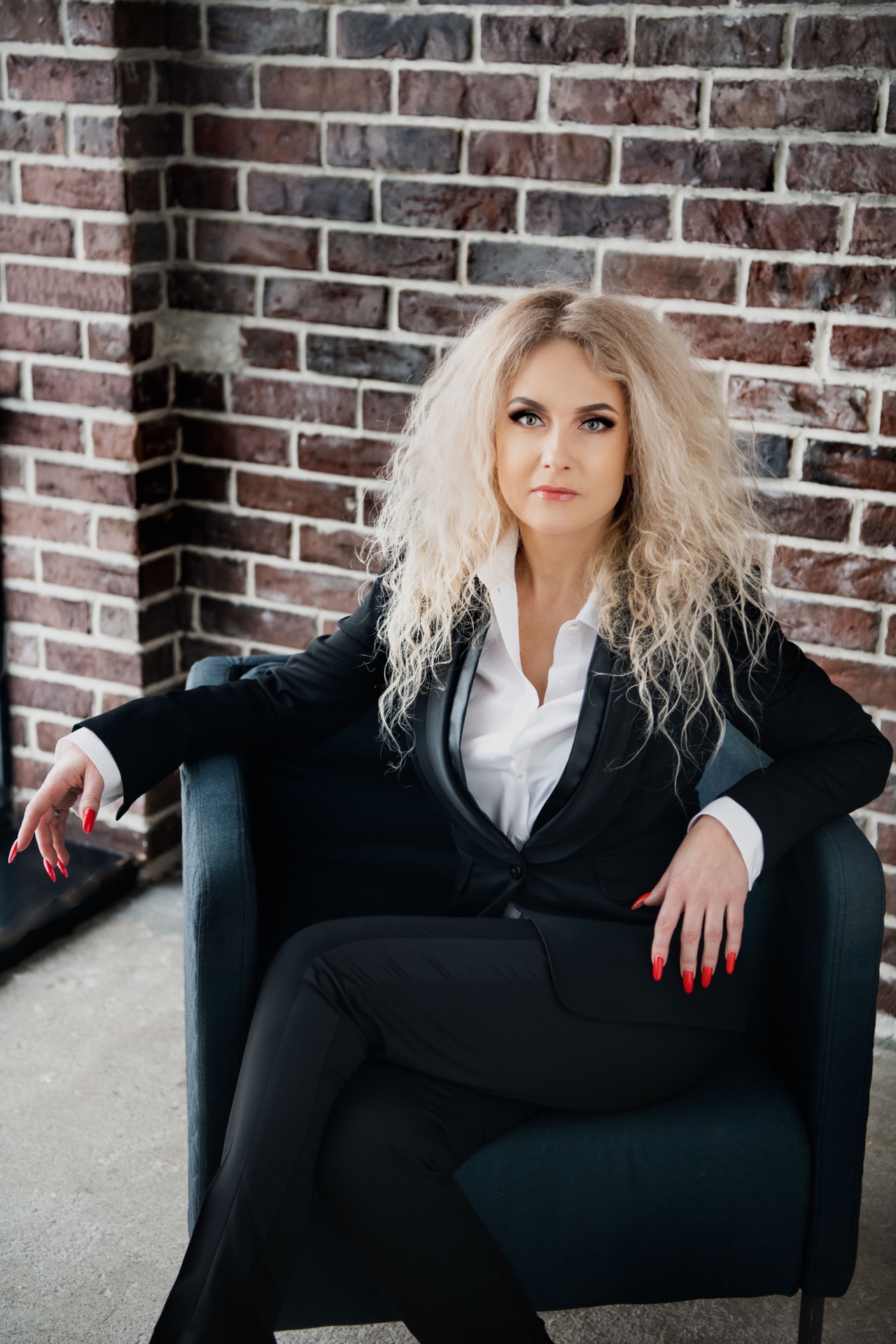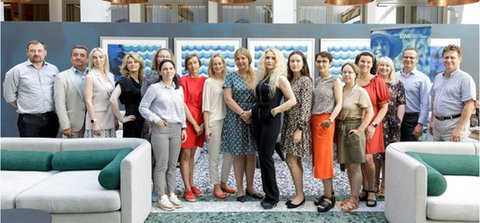
The definition of the word Synergy is ‘the interaction or cooperation of two or more organizations, substances, or other agents to produce a combined effect greater than the sum of their separate effects.’ In this chapter, we highlight the synergy between SmartAgriHubs and another Horizon2020 project. This time we invited Kristina Šermukšnytė-Alešiūnienė to answer a few questions about the the Empowering Women in Agrifood programme in Lithuania, how it supports female entrepreneurs, and to find out how together we can have a greater effect than on our own.
Can you describe the EWA programme in a few sentences?
This program is an extraordinary opportunity to encourage women to make their dreams come true, inspire self-confidence and help them start a start up/business. During the program, in the countries where this program is implemented, ten women innovators with the most promising ideas are selected. Later, they are assigned individual mentors with expertise in different fields based on their needs. Mentors are committed to spending at least 10 hours with participants each month. The program also includes three big live events, a series of webinars, and individual assignments which are evaluated. At the end of the program, the final pitch competition takes place, after which the expert jury chooses three winners, who will share EUR 18,000 this year. Usually, only the 1st and the 2nd places are awarded, but this year we have found a sponsor - Baltic Amadeus, - who established a prize for the 3rd place. It is worth noting that the main evaluation criterion is the progress achieved during the program.
The ultimate goal of the program is to overcome the existing gender gap in the agrifood sector with a special focus on less innovative european regions: promoting inclusivity and diversity between business founders, and increase female founded startups.
Across countries, there are more male than female entrepreneurs, and the share of women choosing to run a business is not increasing substantially. Why do you think this is the case?
As you have already noticed, In Europe, women entrepreneurs make up only a third of the self-employed people. Unfortunately, in the agrifood sector this figure is even lower. This situation has inspired EIT Food to launch a six-month international EWA program, which aims to promote women's leadership in the agrifood sector.
Why is it like that? I think the main reason is a lack of self-confidence. A great example illustrating this is the research that shows that men dare to apply for a high level job position even if they meet only a third of the requirements, while women, meeting 70 or 80 percent of the requirements, dare not to do that. Quote this on the right side. The expectations of the society formed over many years also make impact. For example, when talking to this year's participants of the EIT Food EWA program in Lithuania, we often heard that they have always wanted to start a business, but they were stopped by the fear of failure, self-doubt and perfectionism.
Women are not inferior entrepreneurs compared to men, they have all the necessary skills and in times of crisis, the companies they lead often achieve even better results. However, the main reasons for the small number of female entrepreneurs, I believe, lie in psychology. If we change the attitude, I think that the situation will change drastically. But it takes time, need to invest in education, conversations with women, need for success stories and programs that encourage to start and allow beginners to make mistakes. This is what the EIT Food EWA program is about.
From the EWA perspective, what barriers do you see for women entrepreneurs in agri-food sector and what do you think would break these barriers?
As I have already mentioned, the biggest barrier is lack of self-confidence, fear of making mistakes, the desire to be a perfectionist and societal expectations that have been formed over many years.
To break these barriers, the most important thing is to pay attention to women, their ideas and educate not only women, but also the whole society, that women entrepreneurs in the agrifood sector can initiate big changes. Women's integration into the agrifood sector would strengthen the regions and boost their growth. Today, we can be happy that various programs promoting women's business leadership are increasing, and the best example of such initiatives in the agrifood sector is undoubtedly the EIT Food EWA program. This year alone, this program will encourage 110 young entrepreneurs in Europe. Last year's example in our country shows that after the program ends, women do not give up their ideas, continue developing them, create startups, enter the market, and this inspires us to help them even more.
Research highlights that investing in women is becoming more important for businesses in the food and agricultural sector and that it is important to promote the sector to younger generations. How can we inspire the future of women and diversity in our industry?
The increasing number of women in this sector and the rapidly changing consumer expectations that encourage the development of new, healthier, more innovative, and sustainable products are a very strong indication of woman career prospects in this sector.
To promote the agriculture and food sector to the younger generation, I think the most important thing is to communicate the message that it is an advanced and modern sector that is transforming at an incredible speed, which requires specialists in very different fields, from agronomists to marketing, communication or chemistry professionals. We need to show that agrifood is a sector that is predicted to grow every year due to population growth and the introduction of new technologies. That it is a sector that will always be needed, and its importance will never decrease. When a young person, especially a woman, hears the phrase "agricultural sector", they first associate it with dirty, hard physical work. It is necessary to destroy these myths and show the other side of the agrifood sector, which is modern, inspiring and allows the realization of the craziest ideas.
Where do you see opportunities for (more) synergy between the projects?
I can see quite a lot of synergy between the EIT Food EWA project and various other projects dedicated to the agrifood sector. The EIT Food EWA project is designed to encourage women to start a business, take the very first steps and start implementing the idea they have. After the program, motivated women already have the foundations for their business idea and are ready to grow further. For this, they need other, in many cases, more serious sources of funding, which can be provided by other projects, the focus of which is not motivation and education, but business development, development of new products, testing, R&D. This project is only the first step in the business development journey, and as the example of last year shows, the participants of the EIT Food EWA program later successfully apply to other projects, win them, receive funding, and continue to develop the business inspired by the EIT Food EWA program. Therefore, I can safely say that the EIT Food EWA project has many synergies with other projects on the market.
Contact

"This program is an extraordinary opportunity to encourage women to make their dreams come true, inspire self-confidence and help them start a start up/business."
There are only two restrictions for participants who wish to apply for this program. If they already have a startup, it must not be more than two years old. Also, the business cannot have received more than 30,000 EUR of investments from external sources.

"Men dare to apply for a high level job position even if they meet only a third of the requirements, while women, meeting 70 or 80 percent of the requirements, dare not to do that."
Although the agrifood sector is considered the most conservative sector in the world, I do not think that this is an obstacle for women to start a business in this sector. Women can stand out and offer the market new, advanced and exclusive products that break stereotypes and meet the trends and expectations of today's market.
